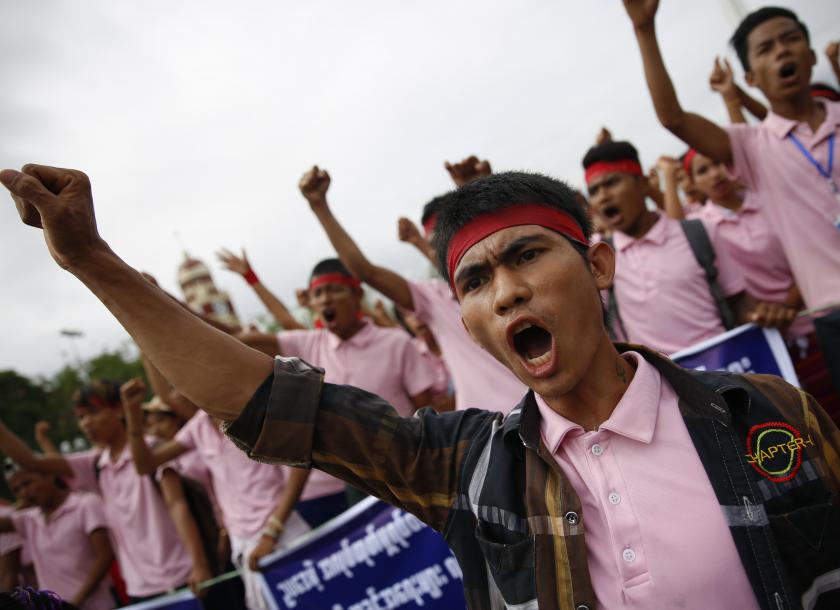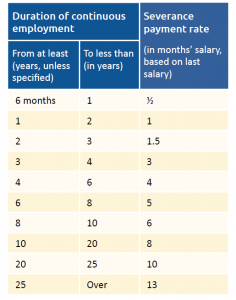Overview of new Myanmar labour law guide
THE International Labour Organization (ILO) published its guide to Myanmar labour law on September 28. The project was funded by the European Union, Norway, Switzerland United States and the ILO.
Since 2011, Nay Pyi Taw has requested ILO’s support for its legal reform process, including assisting the government to conduct a labour law review, aimed at identifying gaps and overlaps, enhancing the legal framework in line with international labour standards, and consolidating the numerous laws in a more coherent manner. Against this backdrop, the new publication brings together many of the sources of Myanmar labour law in a single framework and offer information on the international core labour standards.
The National League for Democracy-led government has been drafting and amending labour legislation as part of its reform program and with the intention of complying with international labour standards.
Rory Mungoven, ILO liaison officer, stated that the legal environment in the country is changing rapidly, with many draft laws currently under review and at various stages of the legislative process with various parts of the government.
“The awareness and understanding of national labour laws, as well as International Labour Standards, is low among both employers and workers in Myanmar. Translations of relevant laws and regulations are difficult or impossible to come by for various international actors. The current disparate legal framework, including both existing and draft laws and regulations that impact on the labour market, causes confusion as to the legal rights and obligations of employers and workers,” he noted.
The Myanmar laws and regulations consulted for this guide include: Payment of Wages Act (2016), Factories Act (amended in 2016), Shops and Establishments Act (amended in 2016), Leave and Holidays Act (amended in 2006), Penal Code (1974), Child Law (1993), Overseas Employment Act (1999), Anti-Trafficking in Persons Act (2005), Labour Organisation Law (2011), Settlement of Labour Disputes Law (2012), Minimum Wages Act (2013), Foreign Investment Law (2013) and Special Economic Zone Law (2014).
Here is some of the key information provided by the publication.
Minimum wage
The current minimum wage has been set at K450 per hour, and 3,600 Kyat per day, according to the guide. This daily rate is based on an 8-hour day, and does not include overtime, bonuses, incentives, or any other allowances, and so must be considered separately. Part-time workers must be paid on a pro rata basis.
Working hours
Adult workers in factories, shops and establishments shall not be required to work more than 8 hours per day or 44 hours per week. Rest period are unpaid. Periods of work within a workday must be established and arranged so that workers do not work longer than five hours at a stretch without receiving a rest of at least 30 minutes. However it is arranged, the workday composed of periods of work and intervals for rest may not exceed a total of 10 hours.
Overtime work
For workers in shops and establishments, if there are special matters which require overtime work, such overtime work should not exceed 16 hours for any one week. Moreover, overtime work shall not extend beyond midnight.
Overtime hours for workers in factories are regulated under a directive: for workers who do not engage in continuous work, overtime hours shall not exceed 20 hour per week: i.e. 15 hours from Monday to Friday (3 hours x 5 days) and 5 hours for Saturday. Workers who work more than 8 hours per day or 44 hours per week must be paid at twice the ordinary wage rate (not including allowances) for overtime hours. Adult male workers in factories engaged in continuous work begin accruing overtime at twice the ordinary wage rate after working more than 48 hours in a week.
Public holidays
Workers who are required to work on a public holiday are paid at double the normal rate plus a cost-of-living allowance. Public holidays that fall on a rest day or other holiday may not be taken on another day. Religious holidays for non-Buddhists may be taken based on agreement between employer and workers, but workers do not have to be paid.
Medical, maternity / paternity leave
Employers must give workers leave without deduction from wages for medical treatment when workers cannot work due to illness. Workers who present a medical certificate may take paid medical leave up to 30 days per year after working for at least six months. Workers who have worked less than six months may take unpaid medical leave.
Pregnant mothers are provided six weeks of prenatal leave and 8 weeks of postnatal leave, for a total of 14 weeks of maternity leave. Fathers are entitled to 15 days of paternity leave.
Payment for such leave is the responsibility of the employer unless the worker contributes to the social security board scheme.
Termination of employment
An employment contract must include provisions on resigning and termination of service as well as termination of agreement. If an employee desires to resign from the job, he or she shall inform the employer 30 days in advance with sound reason. If an employer desires to terminate the employment, he or she shall inform the employee 30 days in advance with sound reason. When a worker is terminated from employment, the employer must pay severance on the basis of his or her last salary.
When a worker is terminated from employment, the employer must pay severance on the basis of his or her last salary. Graph: ILO
Child labour
The Child Law states that children have the right to engage voluntarily in work allowed by law, including the special rights provided in respect of hours of employment, rest, and leisure. However, no one under 14 years old may be employed, and all workers under 18 years old may only work if a certificate of fitness for work is granted by a certifying surgeon/medical practitioner and if the certificate is kept in the custody of the manager of the factory. All young workers must carry a token certifying his/her fitness for work while working.
Children’s working hour
In factories, no children 14-15 years of age may work more than four hours in any day (five hours maximum if breaks are included). They may not work between 6 p.m. and 6 a.m. Both restrictions apply to shops and establishments as well.
No child shall be required to work in the worst forms of labour including in hazardous conditions, conditions harmful to his/her health, conditions deterring his/her education and in such a way his/her moral and dignity would be affected.
Among the persons aged 16 and 17 years of age, those who have completed the relevant vocational trainings, who know and abide by the directives relating to the occupational safety and health, and those who are certified by the registered medical practitioner, shall be allowed to work in the trades which are safe and which do not affect the development and moral of such persons.
Source: https://www.mmtimes.com/news/overview-new-myanmar-labour-law-guide.html


 English
English





